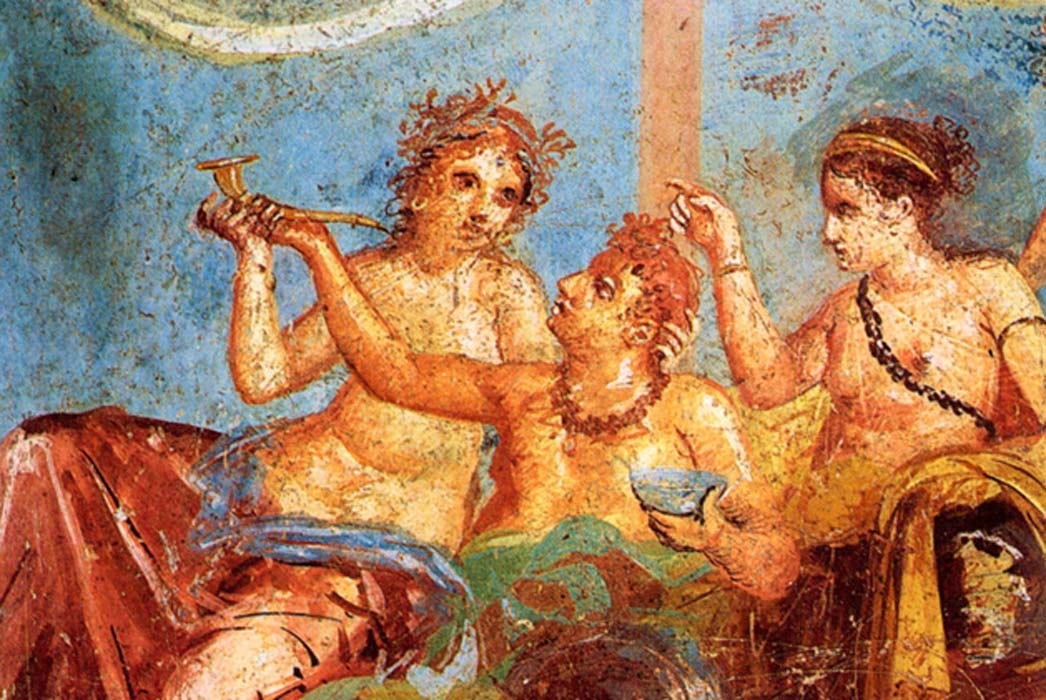
Shave Your Armpits and Don’t Smell Like a Billy-Goat: Ovid’s Art of Love, Relationships and Adultery
Born a year after the assassination of Julius Caesar, Ovid’s first works appeared in the early days of the Augustan principate. Ovid wrote various works throughout his long career, but none so insightful for the everyday person as his Ars Amatoria (“The Art of Love”).
At first glance, the three books of Ars Amatoria are a collection of short poems playing with the common tropes of love stories: the locked-out lover, the slave go-between, the traditional symptoms of love, the rich rival, the witch-bawd, infidelity, and the occasional successful erotic encounter. However, they also include elegiacs which teaches the reader how to be a good lover. This is followed by the 814-line poem Remedia amoris (“The Cure for Love”), which teaches the reader how to be good at breaking up.

Statue of Ovid (CC BY-SA 3.0 ro)
Although it was written in 2 CE, much of Ars Amatoria’s advice and methods are helpful regardless of century. Ovid’s advice for men include being physically presentable and smelling nicely, using flattery, not forgetting his wife’s birthday and never asking a woman about her age. Ovid also included many tips for women which would not be out of place in today’s magazines, such as flirting techniques, advice for one’s daily beauty routine, hairstyles, clothing and make-up.
“A Poem and a Mistake”: The Literary Rebel in the Golden Age of Rome
Publius Ovidius Naso was born in 43 BCE in the town of Sulmo in the Apennines to the east of Rome. Ovid came from a well-to-do equestrian family who sent him and his brother to be educated in Rome to later have them pursue careers in public life. After the death of his brother, Ovid renounced the study of law and politics and began a period of travel. Upon his return, he held some minor public posts until he eventually resigned to pursue poetry in earnest.
Ovid was described by Seneca the Elder as emotional and impulsive by nature. In fact, Ovid appears prominently in Seneca’s reminiscences of the declamation schools of the early Augustan period. According to Seneca, Ovid was held to be a good declaimer in his student days. Seneca even comments on Ovid’s cleverness, adding “except that he ran through the commonplaces in no fixed order”. Here we see the beginnings of the stereotypical combination of ingenium (“ingenuity”) and lack of self-discipline and iudicium (“judgement”) that will frequently be applied Ovid.
Ovid’s lack of judgment, (or possibly faulty sense of timing) showed in Ars Amatoria where he also wrote about adultery. This, in itself, may have been acceptable if it was not for the fact that the emperor Augustus had just passed the Julian Marriage Laws of 18 BCE, promoting monogamous marriage to increase the population's birth rate and effectively outlawing adultery.
- Being Lovesick Was a Real Disease in the Middle Ages
- Four Ways to Love: How the Ancient Greeks Used Magic to Fulfil Hopes, Dreams, and Desires
- More than a Goddess of Love: The Many Other Aspects of Aphrodite
- Trying to Align Forbidden Love, God, and Science: The Secret Relationship of Nicolaus Copernicus and Anna Schilling
Ovid’s statements in Amores III.4 such as “the truth is, there is no woman so exciting as one who whispers, “what if we get caught?” and “Why did you choose a beautiful wife, if you wanted a faithful one?”; albeit popular and entertaining, may have played a role in getting him banished from Rome to the city of Tomis on the Black Sea in 8 CE as they appeared subversive to the emperor's moral legislation.





